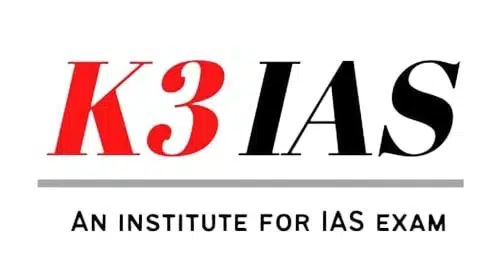
Table of Contents
Becoming eligible for any government job is highly challenging. The UPSC Civil Services Exams in India demand hard work and dedication to become one of the top civil servants. Those aspiring to achieve this status must strive for perfection. However, perfection is the outcome of numerous intelligent actions, the ability to identify mistakes, and learn from failures.
After careful observation, conducting interviews, and analyzing reports, we have identified some common mistakes made by candidates during their preparation for the UPSC examination. Whether students make these mistakes willingly or unwillingly, they can be avoided with the right guidance, a strong strategy, and well-defined routines.
Common Mistakes By UPSC Aspirants in India
Regardless of whether you have just begun preparing for the IAS exam or have been at it for many years, it is essential to review your performance and take the necessary steps to improve. Let’s discuss the 10 common mistakes to avoid during UPSC preparation.
1. Neglecting The Syllabus

Without understanding the UPSC IAS syllabus, the entire IAS preparation becomes a nightmare. If you are clear about the course and your goal, then you are already on the right track and easy way. Because the syllabus gives you an overview of the entire subject through which you will be confident about the priority, concept, and easy to understand each and every topic and question. So always read the syllabus before beginning the chapter or subject.
2. Poor Time Management And Study Plan

“The most effective study is studying in short pockets with full concentration and taking short breaks in between. Your focus should not be on how long you studied, but on how much you studied.”
Everyone’s strategy is different for everyone. Your excellent time management skills enable you to accomplish your goals faster. Poor strategy results in loss of energy and time. Be realistic about the time required to complete the topic. Prioritize your tasks, take short breaks, track wasted time, and eliminate distractions. You must know that UPSC preparation requires a lot of focus and hard work and sometimes a lot of sacrifice for the weak candidates.
Your perfect time management and study plan gives you;
- To get more done in less time
- Reduces stress levels
- More time to prioritize and plan
- Helps to become efficient
3. Neglecting Health And Well-Being

According to a 2017 report, 14% of the population in India suffers from mental health ailments, including 45.7 million people with depressive disorders and 49 million with anxiety disorders.
Exercising in a daily routine is not a big task, healthy food and a healthy lifestyle boost your IAS preparation along with increasing focus and productivity. The Sanskrit word “yoga” means “union” which establishes a connection between mind and body.
A healthy body helps you with;
- Increased concentration
- Memory enhancement
- Better sleep quality
- Stress relief, etc.
4. Overemphasis On Rote Learning Rather Than The Concept

One of the most demanding competitive exams, UPSC requires analytical skills as well as knowledge of facts and current affairs to secure top ranks.
In some parts of UPSC preparation, rote learning can be helpful to crack the exam. Memorizing formulas, facts, dates, current affairs, etc., requires rote learning skills. On the other hand, conceptual learning is a must-have skill to excel in the UPSC exams.
It is not always recommended to focus solely on rote learning, as it is not sufficient to compete with other aspirants. A strong foundation in the subjects can enhance the understanding of the entire UPSC syllabus and help in studying more efficiently and effectively over the long term.
Also Read – GS Foundation Course For UPSC: All You Need to Know
5. Overdependence On Coaching Institutes

At K3 IAS Coaching in Indore, we provide valuable guidance, study material, and a structured approach, but excessive reliance on them can lead to many drawbacks. Candidates may become overly dependent on pre-packaged study material and strategies, which may hinder their ability to think creatively and independently.
To tackle these challenges, aspiring UPSC aspirants must strike a balance between self-study and coaching institute help. Although coaching can provide structure and direction, it should complement, not substitute, a candidate’s individual efforts.
Also, You May Like – How to Prepare for UPSC Exams Without Coaching?
6. Neglecting The Importance Of Test Series

By taking mock tests and test series, you can analyze your preparation progress and plan for further studies. Also, by analyzing the previous year’s questions for static GK, you can prepare probably for the predictable aspects of UPSC preparation.
Instead of focusing on the marks obtained by them, the focus should be on the tests itself. What matters is how well you do in the final exam. Test series provides a significant advantage by letting you know what topics you still need to learn, allowing you to focus on those areas in your future studies.
7. Overconfidence

During the tough competition and rigorous preparation, the biggest problem faced by many aspirants is overconfidence. When candidates feel overconfident on their abilities and think that they are prepared enough, they start neglecting the consistency and dedication towards their studies. It could be because of high marks in test series or high grades in college etc.
Confidence is undoubtedly beneficial in any pursuit. while self-confidence is a valuable asset in UPSC preparation, on the other hand, over-confidence can be a significant barrier. Overconfidence can lead to a dismissive attitude towards feedback and constructive criticism.
You need to go for a balanced approach to avoid overconfidence. Combine your confidence with humility, being true to who you are and always willing to learn. It is important to be aware of your strengths and strive for improvement based on a deep sense of respect for the complexity of the UPSC examinations.
8. Choosing The Wrong Optional Subject

Optional subject is the most important part of the UPSC exam. It can be more beneficial to score high marks in the exam as the rest all the topics are common for all and some are only qualifying in nature.
Some of the candidates who get low marks might be because of the mistake of choosing the wrong optional subject which can be disastrous for their UPSC IAS preparation. Choosing optional subjects by comparing interests of other toppers or following trends without considering your interests, strengths and background knowledge may lead to lack of interest and motivation during preparation.
At K3 IAS, we help our aspirants choose an optional subject during the UPSC course in Indore by considering the following important key points –
- Interests: Studying with interest helps you to complete the subject faster and easier. One’s interest in the subject can spur research and help you understand more deeply.
- Common topics: Certain optional subjects may have overlapping topics with the General Studies papers, offering an advantage to candidates who can integrate their knowledge effectively.
- Difficulty: You must consider the difficulty of the subject based on your background knowledge and weakness, irrespective of the opinions of other candidates.
- Availability of resources: Another important aspect is to check the availability of the resources of the subject, this includes teachers, materials, and guidance.
- Length of Syllabus: Check previous year questions and syllabus length. The answers for many optional subjects keep changing every year. Subjects containing relatively more stable information are easy to score high marks such as; History, Geography, Literature, Philosophy, Psychology etc.
9. Ignoring Revision

Many IAS aspirants focus solely on covering the vast syllabus and gathering knowledge but underestimate the importance of revisions. Why is your mind doesn’t agree to sit for the revisions? This may be because of the pressure to complete it before your decided deadline, or perhaps due to overconfidence which makes you feel prepared enough.
Without regular revision, most of the valuable information can fade away from your memory over time and you can not recall, this can lead to a lack of clarity and confidence during the IAS exam. Candidates must switch to frequent revisions a few months before the exam. It helps candidates stay well-prepared, organized, and confident, which are essential attributes for success in the highly competitive UPSC examination.
10. Getting Panic During The Examination

Test anxiety is a psychological condition where candidates feel extreme distress and worry during the examination. Due to which the candidates get panic.
You prepared hard given enough time and feel that now you are ready for the exam, but when you entered the exam hall, you got blank, and you forget all the formulas and important notes. If this happened to you before then you know that the scorecard did not reflect your true abilities.
Reasons for your test anxiety may include fear of failing the test, lack of adequate preparation, or a bad experience you’ve had in the past.
Some tips to overcome test anxiety and stay calm during the UPSC exam.
- Be prepared before the time of the exam.
- Read the question paper carefully.
- Don’t look at what other people are doing.
- Focus on calm breathing and positive thoughts.
- Keep a positive mental attitude.
- Get a good night’s sleep.
- Practice IAS mock exams.
Final Words
“A man only learns in two ways, one by reading, and the other by association with smarter people.”
– Will Rogers
The aspirants who are preparing for the UPSC exams from K3 IAS coaching in Indore are offered proper guidance, resources, and assessment sessions to cover everything they need to improve for cracking the exam. Our top tutors teach them to study effectively and speedily by providing them with UPSC best coaching in Indore with top-notch lecture classes and online videos, quality test series, mock tests, and mock interviews. If you need any help regarding UPSC preparation, feel free to give us a call.


